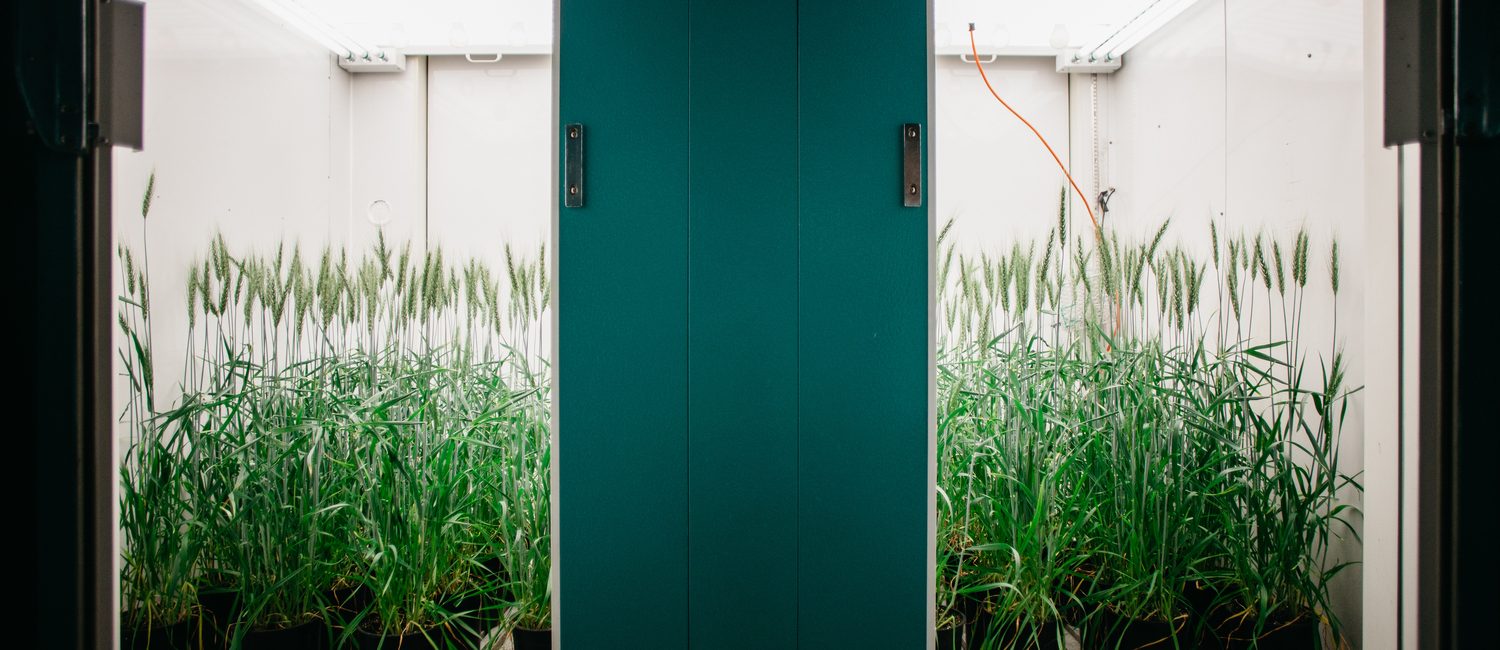
Expecting a bumper crop? Growing through environmental stresses like cool soil temperatures, frost and drought is a lot to ask from a seed. Researchers at InnoTech Alberta are pitching in to help plant breeders find improved stress resistance in their breeding lines.
Ecosystems and Plant Sciences’ Ludovic Capo-chichi is on the forefront of this effort. Finding resistance to environmental stress, referred to by researchers as abiotic stress resistance, is an ambitious task. With the help of breeding programs provincially, nationally and globally, the establishment of the Canadian Abiotic Yield Resiliency Screening (CAYRS) program is a step in the right direction for our organization and the agriculture industry at large.
“The interest by Canadian and international breeders for collaborating and advancing abiotic performance has been an exciting development for us here at InnoTech Alberta,” says Ludovic. “The primary goal of the CAYRS program is to search for yield resiliency that will benefit farmers, first with barley and then screening other crops such as wheat, canola and oats.”
A significant investment of $250,000 by InnoTech Alberta for a state of the art environmental chamber at its Vegreville facility can precisely simulate field conditions including combinations of frost, drought, or heat. Each of the 50,000 seedlings that are anticipated to be annually screened in this chamber potentially holds the genes to make farming more predictable under adverse field conditions. The capacity and focused program to search for these genetic traits did not exist in Canada until now.
In its first year of operation, the CAYRS program has identified substantial genetic variation in barley related to low-temperature tolerance and the molecular markers linked to these traits are now being validated for breeders. In the near future, farmers will be planting barley seed that has been better armed to fight the relentless battle against environmental stress.